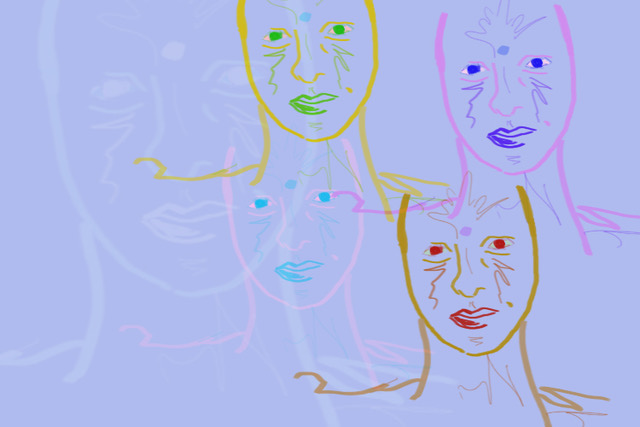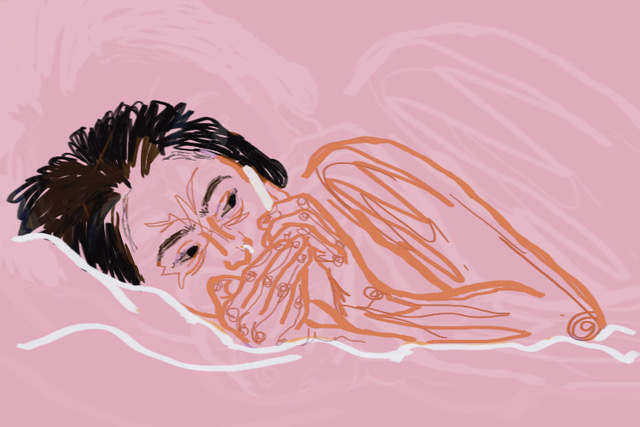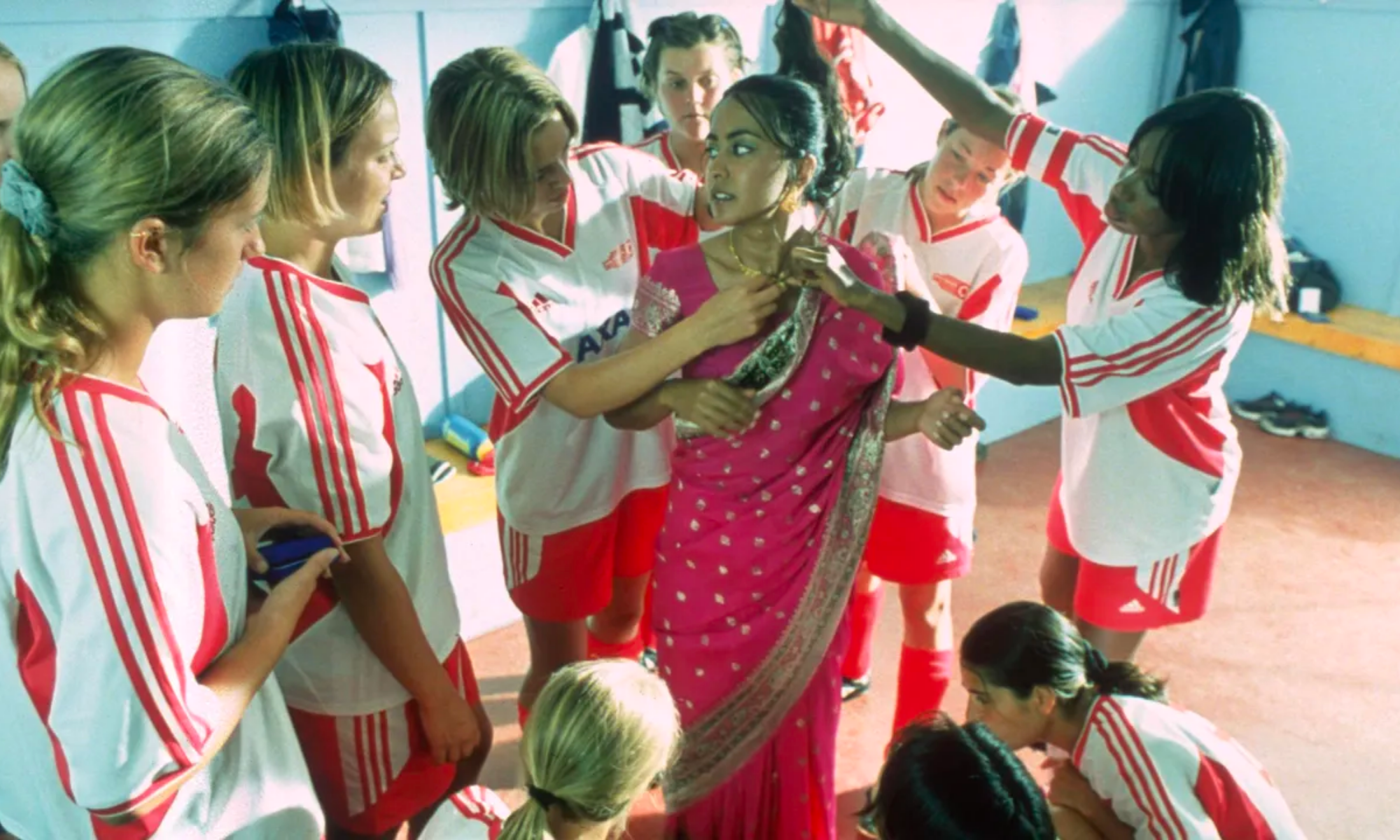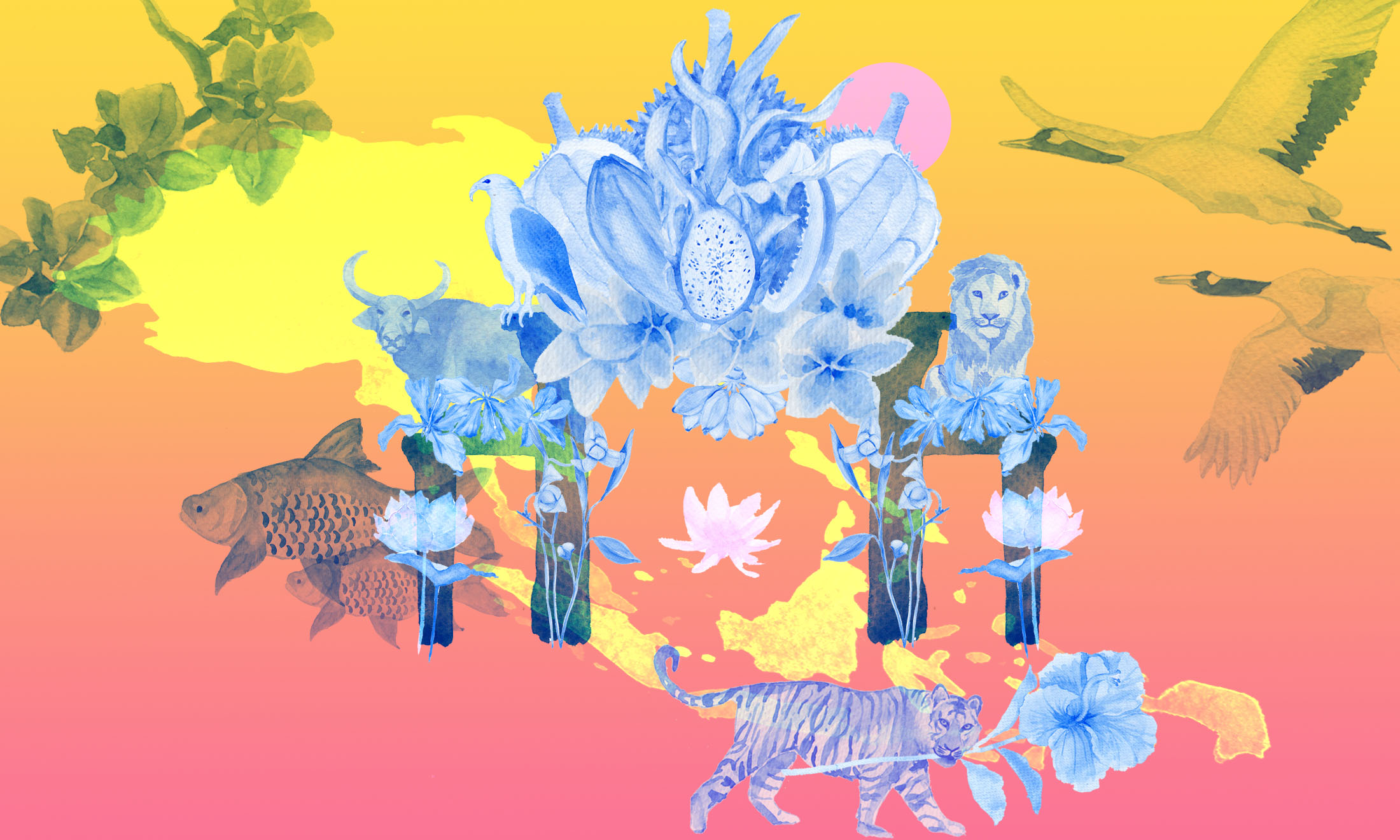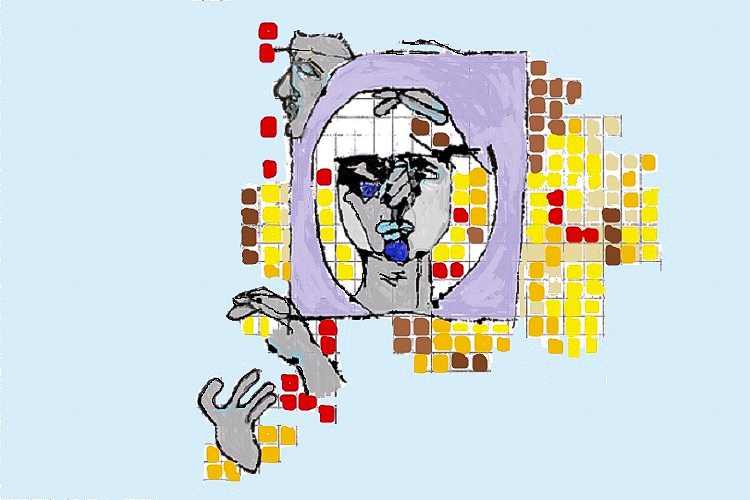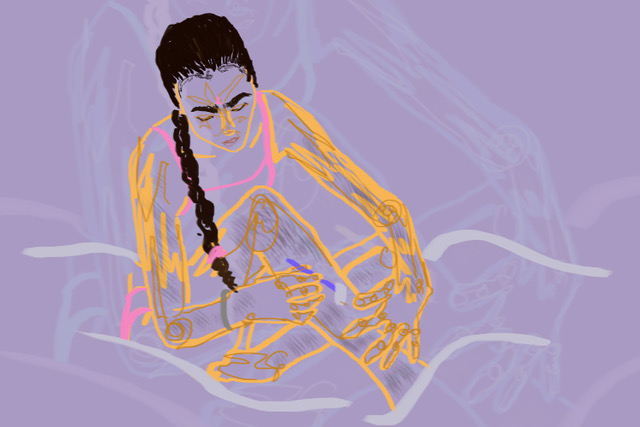
Duplicity refers to the state of being double; of having more than one apparent truth. Duplicitous codes refer to the need for individuals to live differently and behave differently in different contexts. Arguably, this is a necessity for a functioning society, there are rules governing how we must interact and communicate with one another in professional or social settings. Individuals may alter their behaviour to adhere to these standards regarding etiquette or mannerisms. This kind of duplicity does not threaten the essential nature of our being, we are being asked to temporarily alter our mannerisms or to regulate some aspect of our habitual behaviour, thus, it is easy to accept this kind of expectation as a part of life we all deal with.
However, a different kind of duplicitous code exists which affects substantially more people than we realise, in more serious ways. It is the kind of duplicity that is born at the intersection of two cultures. It may lead the individual to not simply adjust behaviour temporarily, but to live two opposing and conflicting lives in order to be accepted and respected in both communities simultaneously. In this scenario, the conflict between two sets of ideals, beliefs and expectations, is not resolved externally through communication or compromise, but internally, resulting in an individual becoming accustomed to lying, deceiving others and compromising personal values.
One demographic substantially affected by this experience, is second generation British Asian women who are frequently caught between the conflicting expectations of parents and those of the wider society in which they have been raised. As part of the process of writing this article, I have interviewed a number of second-generation British Asian women to find out more about their personal experiences, memories and to map out the common problems they face and the impact this can have on their wellbeing and life decisions.
The results were devastating, every single woman was able to talk in ample detail about the correlation between leading a double life and mental health problems, primarily depression and anxiety, but in some cases they also mentioned suicidal ideation, self-harm and eating disorders. Another finding was that the majority of women reported feelings of isolation, loneliness and an inability to develop a sense of true belonging in any area of their life, because in every relationship some aspects of their identity was always concealed. The interviews also revealed that all women experienced a great deal of grief, because either they would mourn the loss of their individual identity that was being suppressed, or when they began to live authentically, they mourned the loss of relationships that had depended on deceit to survive. As one contributor stated: “I just can’t win. If I become who I really am, that isn’t a joyful experience, because I lose the respect and love of my parents. And if I just keep living this way, then I am slowly losing more of myself and who I want to be. It’s a lose-lose scenario, no matter what I choose, there is loss.” So why is the experience of life between two cultures so difficult for some women and what do those women think about how we can move forward?
“Why is the experience of life between two cultures so difficult for some women and what do those women think about how we can move forward?”
The experience of being British Asian is particularly multifaceted because of the deep and complicated history of the relationship between Britain and India. A number of women in the study revealed that their parents inherently felt a deep-rooted conflict between their home country and Britain, thus the concept of being British was never an option. For many of the contributor’s parents, there is an active, conscious desire to reject British values and culture in order to emphasise independence. One contributor stated “When my parents came here in the 70s, there was a lot more hostility and there were not that many Asians here, so to retain a sense of identity, I think they really clung to their roots. They didn’t want to be considered British in any way. Society has changed a lot, but they haven’t, they still perceive the two cultures as in direct conflict, so they very persistently refuse to adjust in any way.”
The study also revealed that the conflict was not simply one dimensional. Despite being born in Britain, many contributors grew up exposed to racism, thus perpetuating their inability to feel belonging and formulating the belief that it is very hard to be British and Asian simultaneously. “I remember the girls all laughed because I had a plait and my mum would put oil in my hair. The most common joke I got was being told I stunk of curry. It’s weird, I mean, that was ages ago, and high school was a really different experience, but still, to be exposed to that and to be made aware of your difference from such a young age, I don’t think you ever really forget that. I really grew up with a sense that I’d never quite fit in and no matter my clothes, my job, my interests, that feeling still lingers.”
Growing up as British Asian not only exposed these women to this ongoing cultural battle, but also to two contrasting and contradictory belief systems. These not only governed matters such as how they dressed or what they ate, there were fundamentally different ideals regarding marriage, sexuality and family relationships. These contradictions often left the individual to navigate the complexity of fitting into both communities simultaneously. Many contributors describe a period of time when they struggled to distinguish between their own values and those imposed on them. One contributors changing understanding of sexuality summarises this “I remember telling all my best friends that I would never have sex before marriage, I’d probably never even kiss a boy before then and I truly meant it. And when stuff started to happen, I felt like I was betraying myself, or that I’d let myself down. In a weird way, I felt like I’d ‘given in.’ As I grew up, I realised more and more that my views were totally different from my parents, I couldn’t suppress it any longer. At the same time there was no way I could express that to them. So in order to keep peace in the different areas of my life, I just became two people, there was no other option.”
It is also important to note, that altering the self in order to accommodate to the views and demands of a parent is not the only way in which individuals are forced to be deceitful. Many women also acknowledged the need for them to change to become “British” and to be accepted. “My hair was what identified me as Sikh and I had a love-hate relationship with that. At the time I was really religious and felt attached to my hair, but equally I was tired of being different and continually being asked things like ‘If you can’t cut your hair does that mean you can’t shave your legs either?’ One day I just lost it and cut it all off. I felt empowered but then I cried immediately afterwards for hours. I was excited to go to school looking ‘normal’ but I also felt like I’d betrayed my mum. It was just really hard.”
For most women, one of the hardest times to navigate the different aspects of their world was during high school; puberty is a time when the formation of individual identity and social relationships are extremely important for well-being and development. For many British Asian women, this was near impossible since there was a cultural war they were stuck between, victory in one area necessitated some form of personal loss in another area. Satisfying familial and cultural expectations did not satisfy those expectations of friends or individual desires. Fitting in to the norm was not easy or natural, many of the women I interviewed defined this as carrying a “cost,” namely the disappointment or disapproval of a parent, or self-disgust and reproach because of lifelong conditioning surrounding what acceptable or desirable behaviour is. This kind of conflict therefore places the individual in an agonising position of feeling incapable of fully fitting in anywhere, their views are not as comfortably British as their peers, and nor are they as “Asian” as their parents.
Many of the contributors also emphasise that this loss of identity and this denial of self-expression and experimentation is often exacerbated by certain cultural ideals which place great emphasis on family honour and respect for parents. “My parents had grown up in a culture where family trumps everything. It is family first, then the individual. I guess that made sense in India, because you really depended on family for survival, but having grown up in a much more individualistic society, those just aren’t my values. Consciously, I don’t feel responsible for behaving in a way that makes them happy, but I still can’t shake off that guilt, the idea that I should honour their wishes runs so deep, it’s hard to get it out of my head.” Many contributors identified a cultural clash between how their parents and wider society perceived the family unit. Typically contributors identified their parents as feeling entitled to lead the decision making process in various areas of their lives, including education and career choices as well as relationship and marriage choices. Many of the contributors expressed how much they disagreed with this approach, instead defining those decisions as very much “personal choices.” “All around me I saw friends getting in and out of relationships as they pleased, but for me, I knew I could only bring a guy home the day I wanted to marry him. And even then, if he wasn’t the right religion, caste, blah blah, all hell would break loose. It is too much of my parents to ask of me, but they don’t know a world outside of arranged marriage and collective decision making.”
If such conditioning takes place from a very young age, the individual faces a conflict between self-expression and family approval or acceptance, both of which are essential for healthy self-esteem and happiness. Essentially, the child’s ability to be happy depends on a multitude of factors, and unfortunately the cultural conflicts they are facing have made these different aspects mutually exclusive. The difficulty of living authentically lies in the fact that it necessitates loss; loss of family acceptance and approval or a loss of social relationships because they do not understand the culture you are from. Deceit is clearly an easier option than confrontation, especially when you consider that many of these individuals were still exceptionally young when they became aware of the conflict between their own desires and those of their families or wider societies. Thus many of these women were still financially dependent on families as well as emotionally dependent on parental love as they were still children or young teens. These women go on to describe in great detail how they learnt to keep aspects of their identity hidden or secret in order to maintain relationships with parents whilst living life by their rules. Many of them mention having two phones and asking siblings or other family members to “cover” or “lie” for them
Again this deceit was multifaceted, many of the contributors also expressed the need to keep these difficulties from their friends in order to still feel accepted in social relationships. As one contributor said “I was so embarrassed of my parents, I would just lie and pretend they were cool with everything. As much as I couldn’t tell my parents what went on at school, I could not tell my friends what went on at home. I just knew they would not get it. The few times I tried, I would get a response like ‘I’m sure if you tell them the truth they will accept it as they love you and just want to see you happy.’ It infuriated me because it just further emphasised how different our worlds were, they could not view my life other than through their lens. For me love had to be earned and they just were too privileged to ever comprehend that.”
All of the women interviewed describe that deceit and lies was eventually normalised. They acknowledge that without deceit they would have lost their ability to belong. Many individuals live in this state for multiple years or decades, or sometimes even indefinitely. Numerous studies have found a link between a lack of authenticity and a decline in mental wellbeing. If individuals are conditioned into believing some aspects of their identity must be kept hidden, they are trained into a lack of self-acceptance and are trained into placing the needs of others above themselves. This can lead to devastating consequences in personal relationships later on in their lives.
There has recently been an increase in awareness of the disproportionate number of LGBT+ people dealing with mental health issues. Some studies have linked this to the family or societal rejection of core aspects of their identities, namely their sexuality. The denial of an aspect so integral to yourself necessitates a lack of self acceptance, deceiving others and lying can lead to a lack of self-esteem and love. Whilst it may not be as apparent, many of the issues these women have discussed recognise this same fact, they are forced to deny core aspects of themselves and their lives in order to be accepted. Because their difference is perhaps not as clearly defined as sexuality, on the surface they appear to fit into society well, but beneath this, it is definitely not the case. In addition to the emotional turmoil this lack of acceptance generates, the practicality of lying, of leading a secret life and living in fear of exposure leads to great levels of anxiety and fear. A number of the women interviewed spoke about the difficulties of maintaining relationships within these lifestyles. They identified the major obstacles posed by not being able to introduce your significant other to your family, the practical difficulties of not being able to bring a partner home and concealing phone calls, gifts and continually lying about where you are going.
“I had a rule for everything, when he could call, a code word which meant to end the conversation and get off the phone, how many streets away he had to park his car when I came to meet him, which areas of London we could and couldn’t hang out in in case someone saw us. It was utterly ridiculous and at the time I genuinely believed that my expectations were normal. One day we were driving in my local area and I was sitting in the passenger seat, I put a shawl over my head and ducked down because I was so afraid someone would see me. He turned to me and laughed and told me I was being silly. In that moment I knew he would never understand just how much depended on me not being seen. Every moment I was trying to uphold these two entirely separate lives. I was constantly on edge. Just thinking about my future and the inevitable clash of my two worlds would make me feel sick to my stomach. I knew if I married him, my family would disown me and I knew I could never leave him for them either. I was perpetually stuck. You stop being a whole person, you are just parts of you in different places and nobody you love can get it.”
A number of the women I spoke to also identified how this duplicity led to self-sabotaging behaviour, subconsciously they knew they could not integrate the different lives they were leading and this led to negative unconscious traits which led to the elimination of one area of their life. “I would just be so unreasonable with my boyfriend, I guess I was kind of looking for him to give up on me and leave, I was looking for an excuse to not have to lie anymore. I regret that a lot, but I didn’t even know I was doing it.” Another key thing contributors noted is the impact duplicity has had on their major life decisions. A number of individuals make decisions on the basis of what would least offend or aggravate cultural differences, this can affect career options or marriage choices. “I just chose that I would marry someone they would approve of. I couldn’t deal with the emotional turmoil of their disapproval, every child wants their parents love of course. I restricted my options to someone of the same religion and caste. Now I always wonder who I might have ended up with if I didn’t do that. If I’m honest, if you asked me right now, would I marry him again, I’d have to say no.”
Many of these women deal not only with the practical consequences this duplicity has on their lives and their decision making, they often also face an eroding away of self-worth because of their perpetual denial of their true values, desires and decisions. The amalgamation of a series of decisions which undermine one’s true nature seriously damage a sense of self. When individuals finally come to recognise they cannot live like this anymore, they must mourn the years they spent living against their true interests. “I used to just compartmentalise myself, in social situations and in my private relationships I would be such a feminist, I could call anyone out on their sexism, and for some reason at home I’d see my parents relationship and know that culturally I just should not intervene. It took me so long to realise I couldn’t be a part-time feminist, I don’t care whose toes I’m treading on. When I finally started speaking up at home I felt so bad about all the years I hadn’t, but I also felt an immense sense of relief. I am who I am wherever I am, it feels like freedom.”
When I asked contributors what they most wanted individuals to know or to recognise about their experiences of being British Asian, all of them pointed out that nobody ever recognised that living between two cultures could be difficult, or if they did they had very stereotypical views on who they thought it would affect. “Everybody knows about arranged marriage or maybe even issues surrounding domestic abuse, there is this stereotypical victim, an uneducated person who isn’t financially independent and is vulnerable and stuck with their family. People just don’t recognise that isn’t the case. Most women are educated, completely independent and capable, that doesn’t take away the difficulty of knowing that different parts of your life can’t co-exist, that you have to lose something to get something else. On paper I can be anyone I want, doing it is another thing. I just wish people were more open to recognising the emotional difficulties.”
Many contributors also expressed how much joy being British and Asian could bring, they wanted to emphasise all the beautiful aspects of growing up knowing about two different cultures, all the richness it had added to their lives, despite these difficulties. “I don’t want this to be a project about fuelling negative stereotypes, yes there are some issues, but they aren’t just Asian, they are very much British issues too, because people are not as accepting or open to understanding cultural difference as they should be, that works both ways. I also know that being British Asian is what has made me an empathetic person, able to relate to people from all walks of life, able to practice unconditional love, because believe me loving my family hasn’t been easy at times. It’s not all terrible, I’m proud of the woman my experiences have made me, at the same time, it didn’t need to be this hard, I wish there was more understanding.”
When asked to leave a final message, another contributor stated, “more than anything I crave empathy. I know I don’t have to be responsible for pleasing my parents. I could easily leave tomorrow, I have money, a job, I even have friends and support. But I can’t tell you how deep that embedded sense of guilt runs. I feel entirely responsible for honouring their views, irrespective of how irrational they are. I wish I could tell people that without them simplifying the situation or judging me. I wish someone could turn around and say ‘oh that is tough’ rather than ‘well clearly your parents don’t love you then’ kind of an attitude. The world is not black and white, at least not for us, I want people to meet me in the grey area.”’
Overall, for many of these women, they recognise that the process of identity formation that happens in the teens for most people happened a lot later for them. Many identify a breakthrough moment in their lives when they realise the costs of living two different lives is too great and unsustainable. Thus, they try to integrate their lives as well as they can. Most say this is followed by a period of loss and mourning, which is compounded by the fact that there is no social recognition of these difficulties. For others, they continue to use deceit and lies as a tool to deal with the difficulty of fitting into two vastly different cultures. The onus of these decisions lies entirely with the individual, but it shouldn’t. There is a wider society that is responsible for promoting more acceptance and acknowledgement of these experiences and the challenges they pose. That is a responsibility which ought to be carried by the families who refuse to adjust their expectations to meet the needs of their children and also by the diverse communities we live in, which must recognise that no two paths are identical and nor can they ever be. Growing up British Asian is often an individual path of loneliness, deceit, loss and then grief, but if travelled collectively, it could be experienced as difference, understanding, appreciation and integration. The choice is ours to make, together.
Disclaimer: I would like to point out that I appreciate this article focuses upon one aspect of being British Asian and the difficulties it poses. My intention is to give a voice to the experiences of many second-generation British Asian women who have not previously had a platform to openly discuss these issues. I appreciate there are many other aspects of being British Asian which are positive and aspirational, but these were simply not the focal point of this article.
If you are interested in sharing your experiences with Gee as a second generation British Asian woman you can contact her on gurdeepgrewal_9@hotmail.com.

